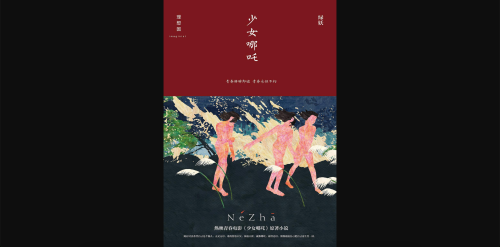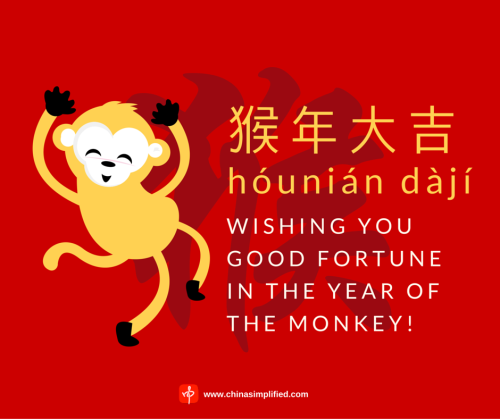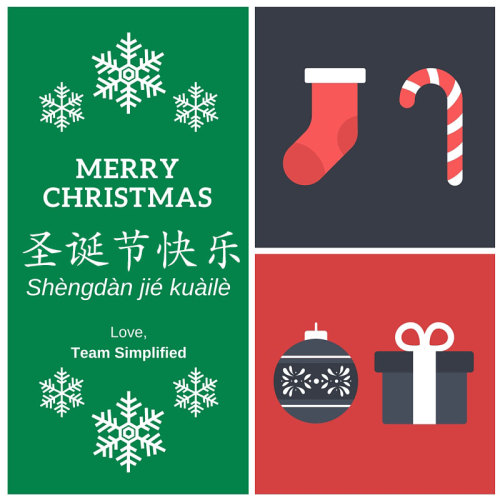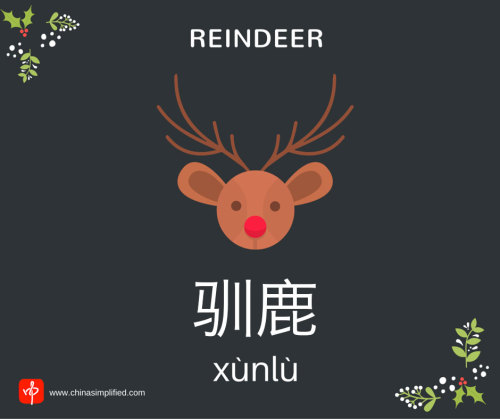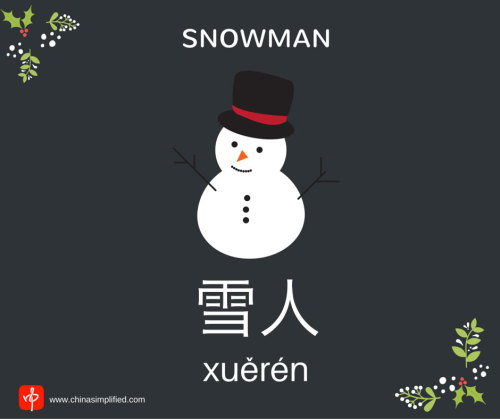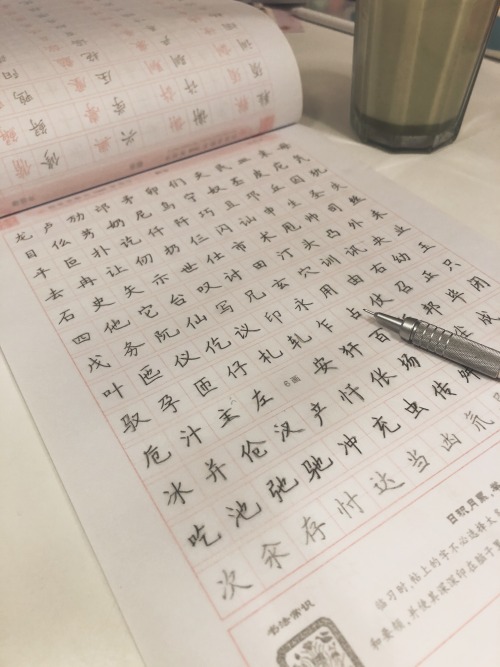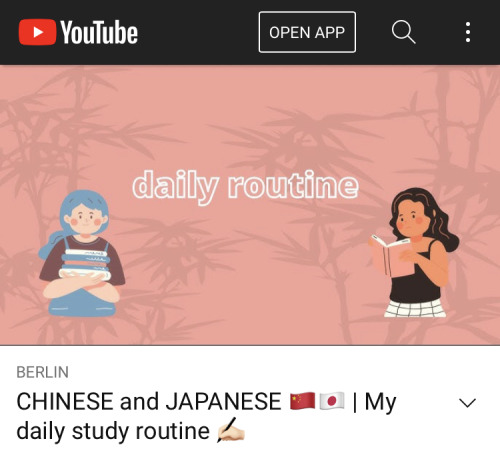#learn chinese
According to this list, these are the top 10 surnames in China as of 2020*:
- 李 Lǐ
- 王 Wáng
- 张 Zhāng
- 刘 Liú
- 陈 Chén
- 杨 Yáng
- 赵 Zhào
- 黄 Huáng
- 周 Zhōu
- 吴 Wú
I’ve seen articles like this one discussing the regional distribution of surnames. I wanted to take a look myself and compare the top surnames in different provinces/municipalities. For instance, do any locations have a top 10 list that is the same as the overall country top 10? Which surname is ranked #1 in the most locations? Let’s explore and have some fun along the way.
*The top surnames for 西藏 Tibet are not included. I believe this is because the population is vast majority Tibetan.
1) Find how many surnames in a location’s top 10 are also in the national top 10.
Most in common

Arrows: grey = same as national rank, green = higher than national rank, red = lower than national rank
Circles: orange = in national top 10 but missing from top 10 of individual location, blue = outside national top 10
- 四川 Sichuan - 9/10 surnames
Missing: 赵 Zhào
Added: 罗 Luó - 贵州 Guizhou - 9/10 surnames
Missing: 赵 Zhào
Added: 罗 Luó
Fewest in common

- 浙江 Zhejiang - 6/10 surnames
Missing: 杨 Yáng, 赵 Zhào, 黄 Huáng & 周 Zhōu
Added: 林 Lín, 叶 Yè, 郑 Zhèng & 徐 Xú - 广西 Guangxi - 6/10 surnames
Missing list: 赵 Zhào, 黄 Huáng, 周 Zhōu & 吴 Wú
Added: 梁 Liáng, 韦 Wéi, 陆 Lù & 卢 Lú - 上海 Shanghai - 6/10 surnames
Missing: 刘 Liú, 杨 Yáng, 赵 Zhào & 黄 Huáng
Added: 朱 Zhū, 徐 Xú, 沈 Shěn & 陆 Lù
2) Find the average national rank for each location’s top 10 list.
OK, this section is a little confusing. Basically, I was thinking that just counting overlapping surnames this isn’t necessarily the best metric. When it comes to surnames outside the national top 10, just counting like I did above can’t distinguish a rank of 100 from a rank of 11! So I decided to take averages.
For each location, I found the national rank of the its top 10 surnames and averaged them. This should give me an idea of which location’s top 10 surnames collectively rank the highest in the whole country. If you add up 1-10 and divide by 10, you get an average of 5.5, so that would be the minimum possible average.
Lowest average
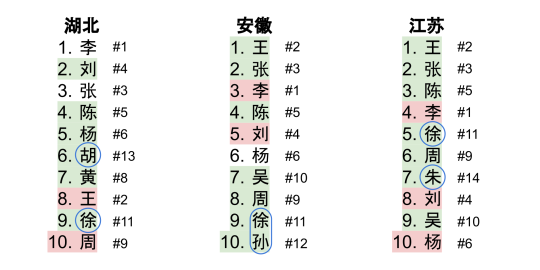
Highlighting: red = lower than national rank, green = higher than national rank, no highlighting = same as national rank
Blue circling = outside of national top 10
Annotated numbers = national rank
- 湖北 Hubei - 6.2 average
Outside national top 10: 胡 Hú & 徐 Xú - 安徽 Anhui - 6.3 average
Outside national top 10: 徐 Xú & 孙 Sūn - 江苏 Jiangsu - 6.5 average
Outside national top 10: 徐 Xú & 朱 Zhū
Highest average
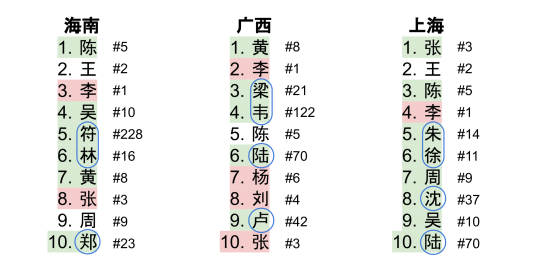
- 海南 Hainan - 30.5 average
Outside national top 10: 符 Fú, 林 Lín & 郑 Zhèng - 广西 Guangxi - 28.2 average
Outside national top 10: 梁 Liáng, 韦 Wéi, 陆 Lù & 卢 Lú - 上海 Shanghai - 16.2 average
Outside national top 10: 朱 Zhū, 徐 Xú, 沈 Shěn & 陆 Lù
3) Add the difference in rank of surnames for each location to create a composite score.
Then I started to think about order within the top 10. After all, a province for which 李 Lǐ ranks #10 should be treated differently from one where 李 Lǐ is #1. So I wanted to capture the difference between a surname’s national rank and its rank for individual locations.
For example, in 广东 Guangdong, 陈 Chén ranks #1, but it’s #5 in the whole country. The difference is 5 - 1 = 4. I did this for the other 9 surnames in 广东 Guangdong’s top 10 as well and added the numbers to get a composite score. Then I repeated this for the other locations.
I used absolute values—otherwise a positive difference and negative difference would offset each other! But I used + and - signs in the images below to show more information. You could also divided by 10 to get the average difference for the top 10 surnames each location.
Lowest score
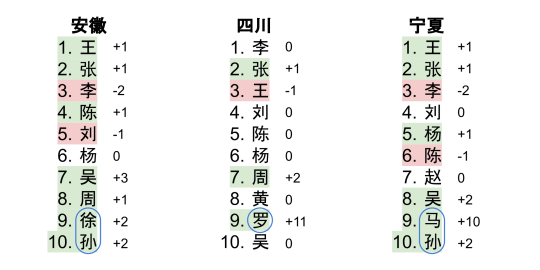
Highlighting: red = lower than national rank, green = higher than national rank, no highlighting = same as national rank
Blue circling = outside of national top 10
Annotated numbers = difference b/t national rank and local rank, with (+) indicating a higher rank locally and (-) indicating a lower rank locally
- 安徽 Anhui - 14 score
- 四川 Sichuan - 15 score
- 宁夏 Ningxia - 20 score
Highest score
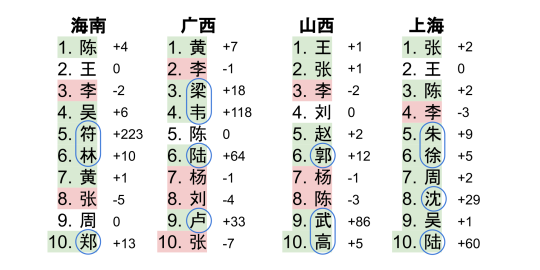
- 海南 Hainan - 264 score
- 广西 Guangxi - 253 score
- 山西 Shanxi - 113 score
- 上海 Shanghai - 113 score
4) For each location, determine how many surnames have no difference in rank.
As an extension of the above, for each location, I counted the number of top 10 surnames that had no difference in rank compared to the national rank. Let’s look closer at locations whose top 10 lists had the fewest changes:
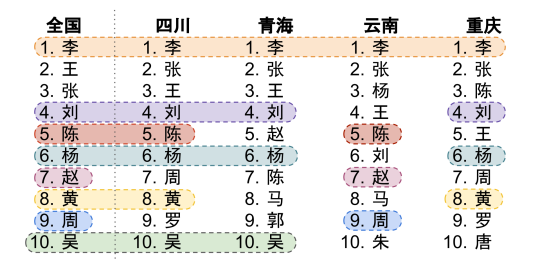
- 四川 Sichuan - 6 surnames
李 Lǐ, 刘 Liú, 陈 Chén, 杨 Yáng, 黄 Huáng & 吴 Wú - 青海 Qinghai - 4 surnames
李 Lǐ, 刘 Liú, 杨 Yáng & 吴 Wú - 云南 Yunnan - 4 surnames
李 Lǐ, 陈 Chén, 赵 Zhào & 周 Zhōu - 重庆 Chongqing - 4 surnames
李 Lǐ, 刘 Liú, 杨 Yáng & 黄 Huáng
I’ll also list the locations for which no surnames had the same rank as in the top 10:
- 广东 Guangdong
- 福建 Fujian
- 江西 Jiangxi
- 江苏 Jiangsu
- 贵州 Guizhou
Summary: Which location’s top 10 is closest to the national top 10?
We just saw several different ways of looking at this. Someone who is better at math than I am would probably devise a way to combine the different metrics into a single score. I’m just going to recap which locations we saw appear the most.
Overall most similar: 四川 Sichuan & 安徽 Anhui
Overall least similar: 广西 Guangxi, 上海 Shanghai & 海南 Hainan
5) Find which surnames appear on the most and least location top 10 lists.
This wasn’t something I was initially curious about, but after my analyses above, I grew curious. I’m just looking at the national top 10 surnames here. There are 30 locations total, so 30 is the highest possible number.

So 李 Lǐ and 张 Zhāng are the only two that appear in the top 10 for all 30 locations!
I also thought it would be interesting to see which locations are missing for the surnames that were close to 30/30:
- 陈 Chén - 29/30
Missing: 新疆 Xinjiang - 王 Wáng - 28/30
Missing: 广东 Guangdong & 广西 Guangxi - 刘 Liú - 28/30
Missing: 海南 Hainan & 上海 Shanghai - 杨 Yáng - 26/30
Missing: 海南 Hainan, 浙江 Zhejiang, 江西 Jiangxi & 上海 Shanghai
6) Which surname ranks 1st in the most locations?
This questions grew pretty naturally off of the question above. I spent far too long making this map to go along with the numbers!
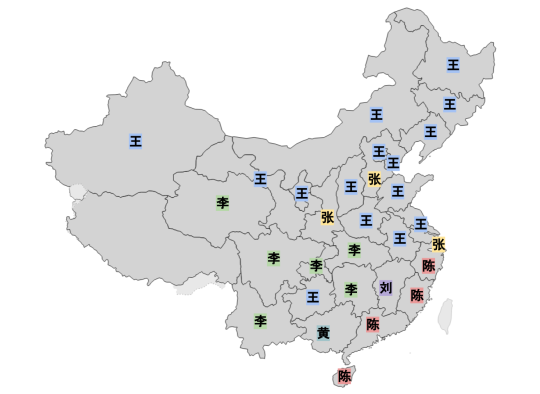
The winner is…王 Wáng with 15 locations! It’s so interesting to see how 王 Wáng is dominant in the north, 陈 Chén rules the southern coast, etc.
- 王 Wáng - 1st in 15 locations
- 李 Lǐ - 1st in 6 locations
- 陈 Chén - 1st in 4 locations
- 张 Zhāng - 1st in 3 locations
- 刘 Liú - 1st in 1 location
- 黄 Huáng - 1st in 1 location
The winner is…王 Wáng with 15 locations!
7) Mainland China vs. Taiwan vs. Hong Kong
I thought this would be an interesting comparison. I wanted to include Macau as well, but I had difficulty finding a list. Here is the Hong Kong data source.
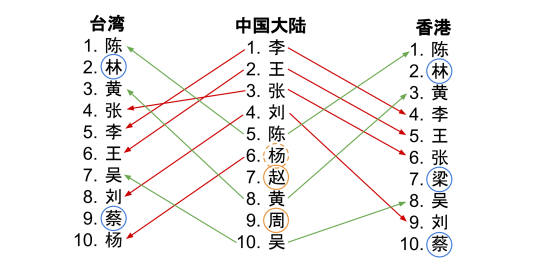
Arrows: green = higher than Mainland rank, red = lower than Mainland rank
Circles: orange = in Mainland top 10 but missing from the HK and/or TW top 10, blue = outside Mainland top 10
I was actually surprised how similar the top 10s are for Taiwan and Hong Kong!
I also wanted to compare Taiwan and Hong Kong to Fujian and Guangdong, respectively. These are the two provinces in Mainland China that they are closest to.
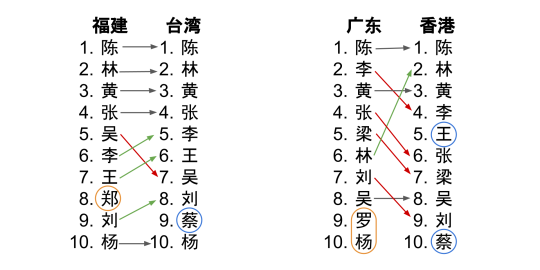
Now, I’m no history expert, but I know that a lot of Taiwanese have roots in Fujian, so it makes a lot of sense that their top 10 lists look so similar. I don’t know much about the history of migration to Hong Kong, but as such a major economic center, I’m guessing people from all over China came to Hong Kong.
Thank you!
If you actually read this whole post, I’m impressed. Thank you!
I initially began working on this post in September 2021. Needless to say, this post ended up being a lot longer and taking up a lot more of my time than I had anticipated. I asked my dad to read over an earlier draft of this post for me, and he literally asked me, “why are you doing this?” I didn’t really have a concrete answer. I just thought it would be interesting to explore surnames a bit. And so here we are :)
Extended list - 大陆25大姓氏
- 李 Lǐ
- 王 Wáng
- 张 Zhāng
- 刘 Liú
- 陈 Chén
- 杨 Yáng
- 赵 Zhào
- 黄 Huáng
- 周 Zhōu
- 吴 Wú
- 徐 Xú
- 孙 Sūn
- 胡 Hú
- 朱 Zhū
- 高 Gāo
- 林 Lín
- 何 Hé
- 郭 Guō
- 马 Mǎ
- 罗 Luó
- 梁 Liáng
- 宋 Sòng
- 郑 Zhèng
- 谢 Xiè
- 韩 Hán
The Most Satisfying Feeling I Get from Learning Chinese
One of the most satisfying feelings I’ve experienced in learning Chinese is the feeling I get after hearing a new word and just *understanding* it. This isn’t that hard when reading (and that’s why we love 汉字), but when it comes to listening, it’s a whole different story. So the moments when I’ve heard a new word and intuitively known what 汉字 it consists of plus its meaning of have made me feel so accomplished. Over time I’ve jotted down some of these words, and I thought they would make a fun post.
- 迷失 míshī - to lose (one’s bearings) / to get lost
I was able to understand this word thanks to knowing words like 迷路, 迷茫, 失去, and 消失. I first remember identifying this word in Escape Plan’s song 夜空中最亮的星.- 旅途 lǚtú - journey / trip
I know a lot of words with 旅 like 旅游, 旅行, and 旅程, and I was also familiar with 途 via 路途 and 前途. So 旅途 was very easy for me to understand.- 心愿 xīnyuàn - cherished desire / dream / craving / wish / aspiration
心愿 is similar in meaning to 愿望 and 意愿, which I already knew. I believe I first heard this word in the song 有点甜 by 汪苏泷 and BY2.- 高傲 gāo'ào - arrogant / haughty / proud
I heard this word in the song 寻宝 by 沈以诚. I’ve listened to this song many times, and one day it just clicked! It’s all thanks to the similar words 骄傲 and 傲慢.- 安稳 ānwěn - smooth and steady
There are so many words with 安 like 安定 and 平安. I also know some 稳 words, such as 稳定 and 平稳. So I was able to put two and two together for 安稳.- 还原 huányuán - to restore to the original state / to reconstruct (an event)
The meaning of 还 here is very familiar from 还给 and 还清. Also, I know a lot of words with 原: 原来, 原本, 原始, 原先.- 选拔 xuǎnbá - to select the best
There are so many 选 words I see all the time like 精选, 选举, and 选择. I also know 拔 from 拔苗助长 and 自拔, so I was able to piece together the overall meaning of 选拔.- 解压 jiěyā - to relieve stress
I’ve already learned the word 缓解 which is related in meaning. Also, I’ve learned 施压 (or 施加压力), which is basically the opposite of 解压.- 感人 gǎnrén - touching / moving
I think this word is pretty easy to put together if you know similar words like 感染, 感动, and 动人.- 认输 rènshū - to concede / to admit defeat
I distinctly remember hearing this word in the Tanya Chua song 救生圈. I think I was able to understand it thanks to knowing that 认 can mean to admit like in the words 承认 and 公认.Here’s to many more of these satisfying moments in 2022!
Since making this post, I’ve been taking note of other instances. Below are 15 more words I was able to get from hearing alone.
- 离散 lísàn - (of family members) separated from one another / scattered about / dispersed
Of course, I know many words with 离, such as 离开 and 脱离. I also know some words containing 散, like 分散 and 散发. So it’s not a big leap to figure out what 离散 means. - 星体 xīngtǐ - celestial body (planet, satellite etc)
I was able to guess the meaning of 星体 because I am already familiar with 星球, which has a very similar meaning. I know it from Star Wars, aka 星球大战! But 星体 is from the EXO-C version of History. - 堆积 duījī - to pile up / to heap / accumulation
I basically understand 堆积 as 堆满 plus 累积. These are two words which I’ve learned previously. - 魅惑 mèihuò - to entice / to charm
Here’s another example where I know two similar words that I can essentially “combine” to get 魅惑. The words I already knew are 魅力 and 诱惑. - 插播 chābō - to interrupt (a radio or TV program) with a commercial insert, breaking news etc / to put a call on hold
I know 播 from words like 广播 and 播放. I also know 插 primarily from the expression 插一句. And thanks to the context (I heard 插播 used while watching a Chinese TV show), I was able to put two and two together. - 杂乱 záluàn - in a mess / in a jumble / chaotic
乱 is such a common character, I see it all the time. As for 杂, I know the word 嘈杂, and my brain seemed to think that was somehow similar, and I guess I was right? There aren’t many characters pronounced za after all. - 掩埋 yǎnmái - to bury
埋 is a 多音字, and I know the mái reading from the word 埋葬. I don’t know 掩 as well, but I’ve encountered the word 掩盖, so I was able to guess that the yan I was hearing was probably 掩. - 期盼 qīpàn - hope and expectation / to anticipate / to look forward to / to await expectantly
期盼 is very similar to the words 期望 and 盼望. I hear 期望 all the time. 盼望 is not a word I encounter as often, but I’m familiar enough with it. - 任一 rènyī - any / either
Don’t quote me on this, but I understand 任一 as essentially meaning 任何一个. They at least seem to be interchangeable in the contexts I’ve heard 任一 in so far. I either heard it in 青春有你3 or 创造营2021, I can’t remember. - 见证 jiànzhèng - to be witness to / witness / evidence
I already knew 证据, meaning proof or evidence, and I was vaguely aware of 证 being used in other words having to do with evidence and witnessing. - 打散 dǎsàn - to scatter / to break sth up / to beat (an egg)
Not gonna lie, I wouldn’t have guessed the beat an egg meaning, but I was able to approximate the other meaning(s). There are so many words starting with 打, so it’s a familiar structure. - 支撑 zhīchēng - to prop up / to support / strut / brace
If you watch the 创造营 series, you have heard the words 支持 and 撑腰 about five million times: party girl之道 姐妹为你撑腰~ 支撑 is very similar in meaning. - 自律 zìlǜ - self-discipline / self-regulation / autonomy (ethics) / autonomic (physiology)
I kinda know the word 纪律, meaning discipline. I think being familiar with how 自 is used in words like 自卫, 自学, etc. helped as well. - 方位 fāngwèi - direction / points of the compass / bearing / position
I think I heard this word in a song, but I can’t remember what song at the moment. I connected it to the words 方向 and 位置. And 百科 defines 方位 as 方向位置, so I was spot on! - 停歇 tíngxiē - to stop for a rest
I know many words containing 停, including 停止, 停留, and 暂停. I don’t think I actually know many words with 歇, but I was aware of its dictionary definition for some reason. Must have looked it up at some point.
Too many of these are from survival shows…I guess that shows that I am learning from them!
I’ve been trying (admittedly not very hard) to read a full book in Chinese for a couple years now. I think I’ve tried 2 or 3 times? Well now I’m trying again with the book 《少女哪吒》 by 绿妖 (Shàonǚ Nézhā by Lǜ Yāo). I’m posting this in hopes that it will help hold me accountable so I actually finish this book!
Why have I picked this book?
- It’s only about 200 pages long
- The pages are physically small, and the text isn’t dense
- It’s a short story collection
- At least so far, the stories are slice of life and set in recent times
From my past attempts at reading a book, I know that I’ll feel discouraged if it’s taking me forever to get through a page. Also, I’m hoping that having six short stories ensures I don’t get bored or bogged down. Lastly, I didn’t want to make things harder for myself by picking a historical or fantasy novel.
One thing that I struggle with with reading in Chinese is resisting the urge to use Pleco. The problem is when I encounter characters that I don’t know. I can guess the pronunciation of course, but I can’t stand the thought of being wrong and then “learning” an incorrect pronunciation! I don’t mind guessing the meanings of new words if I recognize the characters (I try to just look up those words if I’m getting confused or if they repeat a lot so I want to learn them better). But I just don’t see myself ever being able to resist the urge to look up unknown characters! I’ve tried not looking them up and always end up going back after because I can’t take it. Wish me luck~
Post link
A Closer Look at Chinese Names
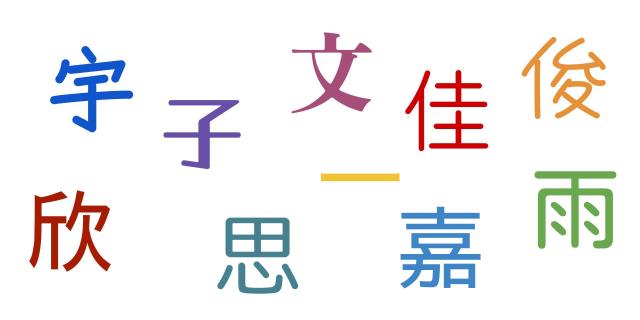
This post has been a long time coming. In spring 2020, I posted two of the most popular posts on this blog:
Reading Chinese Names: Female Names
Reading Chinese Names: Male Names
More recently I have wanted to revisit the idea behind those posts but with a different, more in-depth approach. I also made some decisions while compiling data for those posts that I now regret. So in late summer 2021, I set out to completely redo my data collection with the eventual goal of creating this very post.
About the Data
I will include more information about my data collection process at the end of this post for those interested.
I gathered 3,277 names (1602 male, 1675 female) from idol shows and groups. In the grand scheme of things, this is not a lot of names at all. But I think it’s enough that we can explore names, observe some generalities, and have fun! These names belong to individuals roughly 15-30 years old. Most names belong to individuals from Mainland China, but there are some Hong Konger and Taiwanese names as well.
Some of the name sources include:
- 偶像练习生/青春有你
- 创造101/创造营
- 明日之子
- 以团之名/少年之名
- SNH48
- 快乐女声/快乐男声
- 菱格世代DD52
- Various groups like 时代少年 and SING女团
I also wanted to note something important: the definitions I am using (via MDBG) are only the surface. For example, a name containing a character meaning jade might also have implications of beauty and virtue. So the meaning is more than just “jade.” However, it just isn’t practical to go into all the nitty gritty here. I encourage you to seek out more resources if you are interested.
Some Thanks
Thanks so much to @liu-anhuaming,@meichenxi, and my friend Tiffany for their help and advice during the process of creating this post! 非常感谢你们,你们是最棒的!
Given Names (Overall)

First let’s look at the most common characters for ALL the given names in the dataset. There were 1093 total unique characters across all the given names. I’m going to include more characters (almost rounding out the top 100) at the bottom of this post for those interested. There is also some information broken down by gender below.
Top Given Name Characters
- 宇 yǔ - room, universe / 87
- 子 zǐ - son, child, seed, egg, small thing, 1st earthly branch, midnight, 11th solar month, year of the Rat, fourth of five orders of nobility, ancient Chinese compass point / 82
- 佳 jiā - beautiful, fine, good / 68
- 雨 yǔ - rain / 63
- 嘉 jiā - excellent, auspicious, to praise, to commend / 59
- 文 wén - language, culture, writing, formal, literary, gentle / 58
- 欣 xīn - happy / 55
- 一 yī - one, 1, single, a (article), as soon as, entire, whole, all, throughout / 51
- 俊 jùn - smart, eminent, handsome, talented / 51
- 思 sī - to think, to consider / 49
- 杰 jié - hero, heroic, outstanding person, prominent, distinguished / 49
- 豪 háo - grand, heroic / 48
- 怡 yí - harmony, pleased / 45
- 天 tiān - day, sky, heaven / 44
- 泽 zé - pool, pond, (of metals etc) luster, favor or beneficence, damp, moist / 43
- 琪 qí - fine jade / 40
- 婷 tíng - graceful / 39
- 鑫 xīn - prosperity / 38
- 晓 xiǎo - dawn, daybreak, to know, to let sb know, to make explicit / 35
- 浩 hào - grand, vast (water) / 35
- 晨 chén - morning, dawn, daybreak / 34
- 恩 ēn - favor, grace, kindness / 33
- 博 bó - extensive, ample, rich, obtain, aim, to win, to get, plentiful / 32
- 慧 huì - intelligent / 32
- 明 míng - bright, clear, to understand, wise / 32
- 轩 xuān - pavilion with a view, high, tall / 32
- 辰 chén - 5th earthly branch, 3rd solar month, year of the Dragon, ancient Chinese compass point / 32
Top Given Name Characters (Female)
- 佳 jiā - beautiful, fine, good / 56
- 雨 yǔ - rain / 50
- 欣 xīn - happy / 49
- 怡 yí - harmony, pleased / 44
- 婷 tíng - graceful / 39
- 嘉 jiā - excellent, auspicious, to praise, to commend / 37
- 琪 qí - fine jade / 35
- 思 sī - to think, to consider / 33
- 慧 huì - intelligent / 31
- 梦 mèng - dream, to dream / 30
Top Given Name Characters (Male)
- 宇 yǔ - room, universe / 68
- 子 zǐ - son, child, seed, egg, small thing, 1st earthly branch, midnight, 11th solar month, year of the Rat, fourth of five orders of nobility, ancient Chinese compass point / 55
- 豪 háo - grand, heroic / 48
- 杰 jié - hero, heroic, outstanding person, prominent, distinguished / 47
- 俊 jùn - smart, eminent, handsome, talented / 45
- 泽 zé - pool, pond, (of metals etc) luster, favor or beneficence, damp, moist / 38
- 浩 hào - grand, vast (water) / 35
- 一 yī - one, 1, single, a (article), as soon as, entire, whole, all, throughout / 34
- 文 wén - language, culture, writing, formal, literary, gentle / 32
- 明 míng - bright, clear, to understand, wise / 27
Single-Character Names (单名)

There were 668 single-character names, which is about 20% of the total names. I know that 单名 are pretty rare in Taiwan (I’m not sure about Hong Kong), so that’s something to keep in mind. More of the top 单名 are at the bottom of this post.
Top Single-Character Names
- 鑫 xīn - prosperity / 12
- 欣 xīn - happy / 10
- 洋 yáng - ocean, vast, foreign, silver dollar or coin / 9
- 静 jìng - still, calm, quiet, not moving / 7
- 丹 dān - red, pellet, powder, cinnabar / 6
- 娜 nà - graceful, elegant, beautiful / 6
- 恩 ēn - favor, grace, kindness / 6
- 敏 mǐn - quick, nimble, agile, clever, smart / 6
- 昕 xīn - dawn / 6
- 雪 xuě - snow / 6
- 颖 yǐng - head of grain, husk, tip, point, clever, gifted, outstanding / 6
Female Single-Character Names
- 欣 xīn - happy / 9
- 鑫 xīn - prosperity / 8
- 静 jìng - still, calm, quiet, not moving / 7
- 丹 dān - red, pellet, powder, cinnabar / 6
- 娜 nà - graceful, elegant, beautiful / 6
- 敏 mǐn - quick, nimble, agile, clever, smart / 6
- 雪 xuě - snow / 6
- 倩 qiàn - pretty, winsome / 5
- 洁 jié - clean / 5
- 颖 yǐng - head of grain, husk, tip, point, clever, gifted, outstanding / 5
Male Single-Character Names
- 洋 yáng - ocean, vast, foreign, silver dollar or coin / 7
- 恩 ēn - favor, grace, kindness / 5
- 杰 jié - hero, heroic, outstanding person, prominent, distinguished / 5
- 宇 yǔ - room, universe / 4
- 浩 hào - grand, vast (water) / 4
- 涛 tāo - big wave / 4 (Taiwan pr. táo)
- 硕 shuò - large, big / 4
- 磊 lěi - lumpy, rock pile, uneven, sincere, open and honest / 4
- 立 lì - to stand, to set up, to establish, to lay down, to draw up, at once, immediately / 4
- 耀 yào - brilliant, glorious / 4
- 聪 cōng - wise, clever, sharp-witted, intelligent, acute, quick at hearing / 4
- 超 chāo - to exceed, to overtake, to surpass, to transcend, to pass, to cross, ultra, super / 4
- 鑫 xīn - prosperity / 4
- 鹏 péng - large fabulous bird / 4
Two-Character Names (双名)
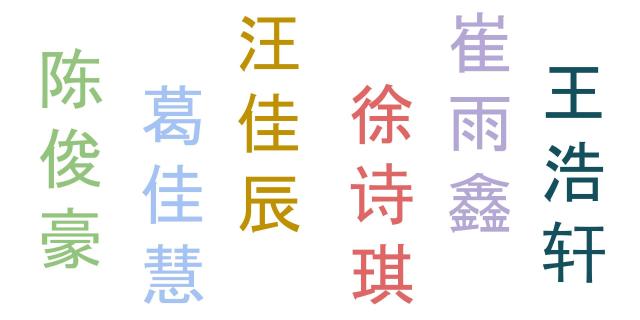
For the lists below, I removed all 单名 and just looked at 双名 characters. One of the things I was most excited to examine in this post was what characters tend to be found in the first vs. second positions. As you will see reflected below, some common characters used in names tend to occur more in one position, like 子 which is more prevalent in the first position. Others are more balanced. I bolded characters appearing in both positions.
Additional top 双名 can be found at the end of this post.
Top Two-Character Names
- 俊杰 jùnjié / 7
- 佳怡 jiāyí / 5
- 嘉欣 jiāxīn / 5
- 天宇 tiānyǔ / 5
- 浩然 hàorán / 5
- 婷婷 tíngtíng / 4
- 子杰 zǐjié / 4
- 安琪 ānqí / 4
Top First Characters
- 子 zǐ - son, child, seed, egg, small thing, 1st earthly branch, midnight, 11th solar month, year of the Rat, fourth of five orders of nobility, ancient Chinese compass point / 72
- 嘉 jiā - excellent, auspicious, to praise, to commend / 49
- 佳 jiā - beautiful, fine, good / 48
- 思 sī - to think, to consider / 44
- 一 yī - one, 1, single, a (article), as soon as, entire, whole, all, throughout / 40
- 俊 jùn - smart, eminent, handsome, talented / 40
- 雨 yǔ - rain / 36
- 天 tiān - day, sky, heaven / 34
- 宇 yǔ -room, universe / 34
- 晓 xiǎo - dawn, daybreak, to know, to let sb know, to make explicit / 34
Top Second Characters
- 宇 yǔ - room, universe / 48
- 豪 háo - grand, heroic / 45
- 杰 jié - hero, heroic, outstanding person, prominent, distinguished / 41
- 琪 qí - fine jade / 34
- 文 wén - language, culture, writing, formal, literary, gentle / 32
- 怡 yí - harmony, pleased / 30
- 婷 tíng - graceful / 29
- 轩 xuān - pavilion with a view, high, tall / 27
- 辰 chén - 5th earthly branch, 3rd solar month, year of the Dragon, ancient Chinese compass point / 26
- 欣 xīn - happy / 23
- 涵 hán - to contain, to include, culvert / 23
- 雨 yǔ - rain / 23
Female First Characters
- 佳 jiā - beautiful, fine, good / 38
- 嘉 jiā - excellent, auspicious, to praise, to commend / 31
- 思 sī - to think, to consider / 29
- 雨 yǔ - rain / 27
- 晓 xiǎo - dawn, daybreak, to know, to let sb know, to make explicit / 26
- 诗 shī - poem, poetry, verse / 24
- 梦 mèng - dream, to dream / 22
- 小 xiǎo - small, tiny, few, young / 20
- 欣 xīn - happy / 19
- 雅 yǎ - elegant / 19
Female Second Characters
- 琪 qí - fine jade / 30
- 婷 tíng - graceful / 29
- 怡 yí - harmony, pleased / 29
- 欣 xīn - happy / 21
- 雨 yǔ - rain / 21
- 君 jūn - monarch, lord, gentleman, ruler / 19
- 慧 huì - intelligent / 18
- 涵 hán - to contain, to include, culvert / 18
- 瑶 yáo - jade, precious stone, mother-of-pearl, nacre, precious / 17
- 莹 yíng - luster of gems / 16
Male First Characters
- 子 zǐ - son, child, seed, egg, small thing, 1st earthly branch, midnight, 11th solar month, year of the Rat, fourth of five orders of nobility, ancient Chinese compass point / 54
- 俊 jùn - smart, eminent, handsome, talented / 35
- 一 yī - one, 1, single, a (article), as soon as, entire, whole, all, throughout / 26
- 浩 hào - grand, vast (water) / 24
- 泽 zé - pool, pond, (of metals etc) luster, favor or beneficence, damp, moist / 22
- 宇 yǔ - room, universe / 20
- 明 míng - bright, clear, to understand, wise / 20
- 天 tiān - day, sky, heaven / 19
- 嘉 jiā - excellent, auspicious, to praise, to commend / 18
- 柏 bó - cedar, cypress / 17
Male Second Characters
- 豪 háo - grand, heroic / 45
- 宇 yǔ - room, universe / 44
- 杰 jié - hero, heroic, outstanding person, prominent, distinguished / 40
- 轩 xuān - pavilion with a view, high, tall / 21
- 辰 chén - 5th earthly branch, 3rd solar month, year of the Dragon, ancient Chinese compass point / 20
- 翔 xiáng - to soar, to glide / 19
- 文 wén - language, culture, writing, formal, literary, gentle / 17
- 霖 lín - continued rain / 17
- 铭 míng - to engrave, inscribed motto / 15
- 泽 zé - pool, pond, (of metals etc) luster, favor or beneficence, damp, moist / 14
- 鑫 xīn - prosperity / 14
- 龙 lóng - dragon, imperial / 14
Comparing Characters by Position

After examining the most popular characters by position, I was curious to look more specifically at which characters appear in one position but not the other. In this section I decided not to include lists separated by gender because it was getting to be too much information.
Exclusively First Characters
Below are the top characters that never appeared in the second position.
- 晓 xiǎo - dawn, daybreak, to know, to let sb know, to make explicit / 34
- 小 xiǎo - small, tiny, few, young / 24
- 紫 zǐ - purple, violet / 16
- 美 měi - beautiful, very satisfactory, good, to beautify, to be pleased with oneself / 15
- 若 ruò - to seem, like, as if / 14
- 智 zhì - wisdom, knowledge / 13
- 书 shū - book, letter, document, to write / 11
- 婉 wǎn - graceful, tactful / 11
- 振 zhèn - to shake, to flap, to vibrate, to resonate, to rise up with spirit, to rouse oneself / 11
- 永 yǒng - forever, always, perpetual / 11
- 秋 qiū - autumn, fall, harvest time / 11
Largest Deltas (First Position)
I also wanted to see characters that were found in both positions but for which there was a big difference in occurrence. I bolded characters that appeared both here and in the list above.
The math is formatted:
# times first position - # times second position = difference
- 子 zǐ - son, child, seed, egg, small thing, 1st earthly branch, midnight, 11th solar month, year of the Rat, fourth of five orders of nobility, ancient Chinese compass point / 72 - 10 = 62
- 思 sī - to think, to consider / 44 - 4 = 40
- 嘉 jiā - excellent, auspicious, to praise, to commend / 49 - 10 = 39
- 晓 xiǎo - dawn, daybreak, to know, to let sb know, to make explicit / 34 - 0 = 34
- 佳 jiā - beautiful, fine, good / 48 - 15 = 33
- 一 yī - one, 1, single, a (article), as soon as, entire, whole, all, throughout / 40 - 9 = 31
- 俊 jùn - smart, eminent, handsome, talented / 40 - 9 = 31
- 天 tiān - day, sky, heaven / 34 - 7 = 27
- 小 xiǎo - small, tiny, few, young / 24 - 0 = 24
- 诗 shī - poem, poetry, verse / 24 - 2 = 22
Exclusively Second Characters
- 豪 háo - grand, heroic / 45
- 霖 lín - continued rain / 22
- 然 rán - correct, right, so, thus, like this / 20
- 琦 qí - curio, valuable stone / 17
- 仪 yí - apparatus, rites, appearance, present, ceremony / 14
- 航 háng - boat, ship, craft, to navigate, to sail, to fly / 13
- 晴 qíng - clear, fine (weather) / 12
- 萱 xuān - orange day-lily / 12
- 帆 fān - sail, to gallop / 11 (Taiwan pr. fán)
- 璇 xuán - jade / 9
Largest Deltas (Second Position)
- 豪 háo - grand, heroic / 45 - 0 = 45
- 杰 jié - hero, heroic, outstanding person, prominent, distinguished / 41 - 3 = 38
- 琪 qí - fine jade / 34 - 2 = 32
- 婷 tíng - graceful / 29 - 6 = 23
- 辰 chén - 5th earthly branch, 3rd solar month, year of the Dragon, ancient Chinese compass point / 26 - 3 = 23
- 轩 xuān - pavilion with a view, high, tall / 27 - 5 = 22
- 霖 lín - continued rain / 22 - 0 = 22
- 涵 hán - to contain, to include, culvert / 23 - 2 = 21
- 然 rán - correct, right, so, thus, like this / 20 - 0 = 20
- 怡 yí - harmony, pleased / 30 - 13 = 17
- 君 jūn - monarch, lord, gentleman, ruler / 22 - 5 = 17
- 琦 qí - curio, valuable stone / 17 - 0 = 17
Gender Associations of Characters

This section is more experimental and exploratory. There are probably better ways to examine the gender association for characters, but I just wanted to take a quick look for fun, not develop a whole new analysis technique.
Gender Neutral Characters
Here I simply took the average of the ranks of each character for male names and female names. If a character was only found in male names or only found in female names, it would just end up with the overall rank of N/A.
The math is formatted:
(Female names rank + male names rank) ÷ 2 = average rank
- 子 zǐ - son, child, seed, egg, small thing, 1st earthly branch, midnight, 11th solar month, year of the Rat, fourth of five orders of nobility, ancient Chinese compass point
(12th + 2nd) ÷ 2 = 7th (82 times) - 嘉 jiā - excellent, auspicious, to praise, to commend
(6th + 18th) ÷ 2 = 12th (59 times) - 文 wén - language, culture, writing, formal, literary, gentle
(15th + 9th) ÷ 2 = 12th (58 times) - 宇 yǔ - room, universe
(30th + 1st) ÷ 2 = 15.5th (87 times) - 思 sī - to think, to consider
(8th + 29th) ÷ 2 = 18.5th (49 times) - 一 yī - one, 1, single, a (article), as soon as, entire, whole, all, throughout
(34th + 8th) ÷ 2 = 21st (51 times) - 天 tiān - day, sky, heaven
(31st + 12th) ÷ 2 = 21.5th (44 times) - 雨 yǔ - rain
(2nd + 45th) ÷ 2 = 23.5th (63 times) - 佳 jiā - beautiful, fine, good
(1st + 47th) ÷ 2 = 24th (68 times) - 恩 ēn - favor, grace, kindness
(37th + 30th) ÷ 2 = 33.5th (33 times)
Female-Leaning Characters
For this section, I looked at characters in female names that did not appear in male names. This isn’t a perfect technique, but I think it is still interesting to see the results.
- 婷 tíng - graceful / 5th (39 times)
- 诗 shī - poem, poetry, verse / 16th (26 times)
- 静 jìng - still, calm, quiet, not moving / 18th (23 times)
- 莹 yíng - luster of gems / 28th (20 times)
- 丽 lì - beautiful / 29th (19 times)
- 依 yī - to depend on, to comply with or listen to sb, according to, in the light of / 35th (17 times)
- 妍 yán - beautiful / 36th (17 times)
- 媛 yuán - beautiful / 40th (16 times)
- 月 yuè - moon, month / 41st (16 times)
- 紫 zǐ - purple, violet / 43rd (16 times)
Male-Leaning Characters
Likewise, for this section I chose characters that appeared in male names but not female names. I actually know women with 龙 and 伟 in their names, so it’s important to remember that leaning male =/= only found in men’s names. There are always exceptions!
- 豪 háo - grand, heroic / 3rd (48 times)
- 浩 hào - grand, vast (water) / 7th (35 times)
- 龙 lóng - dragon, imperial / 28th (17 times)
- 伟 wěi - big, large, great / 36th (14 times)
- 峻 jùn - (of mountains) high, harsh or severe / 38th (13 times)
- 耀 yào - brilliant, glorious / 42nd (13 times)
- 钧 jūn - 30 catties, great, your (honorific) / 44th (13 times)
- 成 chéng - to succeed, to finish, to complete, to accomplish, to become, to turn into, to be all right, one tenth / 48th (12 times)
- 振 zhèn - to shake, to flap, to vibrate, to resonate, to rise up with spirit, to rouse oneself / 53rd (11 times)
- 飞 fēi - to fly / 54th (11 times)
While looking at gender was fun, in the future I’d really like to look at tones/tone combinations, open vs. close syllables, and more. I’m still thinking about the best way to do this.
Surnames
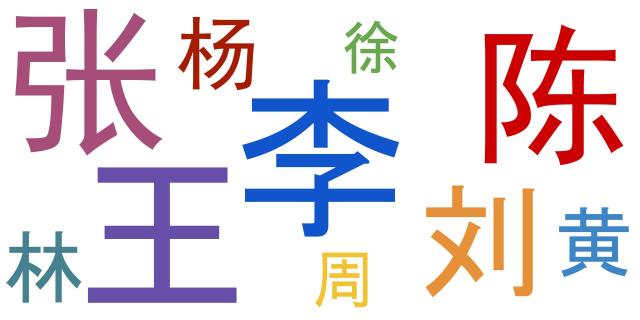
Since surname rankings are actually known, I thought it would be interesting to briefly compare my dataset to the true populations.
Top Surnames
- 李 Lǐ / 240
- 王 Wáng / 206
- 张 Zhāng / 186
- 陈 Chén / 173
- 刘 Liú / 147
- 杨 Yáng / 94
- 林 Lín / 91
- 黄 Huáng / 88
- 周 Zhōu / 69
- 徐 Xú / 66
Mainland Top Surnames
- 李 Lǐ
- 王 Wáng
- 张 Zhāng
- 刘 Liú
- 陈 Chén
- 杨 Yáng
- 赵 Zhào
- 黄 Huáng
- 周 Zhōu
- 吴 Wú
Taiwan Top Surnames
- 陈 Chén
- 林 Lín
- 黄 Huáng
- 张 Zhāng
- 李 Lǐ
- 王 Wáng
- 吴 Wú
- 刘 Liú
- 蔡 Cài
- 杨 Yáng
What stood out to me most was 林 making #7 on my list. I suspect this is due to the inclusion of Taiwanese names. In Mainland China it actually ranks around #16 I believe. 赵 didn’t make the top 10, but I think it was actually #11, so that’s not too far off.
About the Data Cont’
For my original posts 1.5 years ago, I had difficulty maintaining a gender balance and decided to add male names from other types of sources as a supplement. I have since regretted that choice, so this time I worked hard to maintain balance without using unrelated sources. One result of this is that there are names in the original dataset that do not appear in this dataset, so even though the new dataset has more names, it’s possible that there could be fewer occurrences of some characters.
I did my best to remove duplicate individuals (not duplicate names!) and remove stage names that do not sound like real names (or replace them with real names). However, I did not try to swap out all stage names for birth names because that would have been too difficult and time consuming. I also made the assumption that any four-character name could be segmented into two surname characters and two given name characters.
It’s important to note that these names are not necessarily representative of the 15-30 population as a whole. Idols or trainees might change their names to something sounding more cool or hip, and like I mentioned, it simply wasn’t feasible for me to find everyone’s birth name. And my data collection didn’t take into account things like geography/population spread or keep track of ages (but I did for the most part avoid any shows older than 5 years and groups with members 30+).
Extended Lists
Top Given Name Characters
28 星 xīng - star, heavenly body / 31
29 梦 mèng - dream, to dream / 31
30 倩 qiàn - pretty, winsome / 29
31 涵 hán - to contain, to include, culvert / 29
32 艺 yì - skill, art / 29
33 雅 yǎ - elegant / 29
34 雪 xuě - snow / 29
35 君 jūn - monarch, lord, gentleman, ruler / 28
36 翔 xiáng - to soar, to glide / 27
37 霖 lín - continued rain / 27
38 哲 zhé - wise, a sage / 26
39 梓 zǐ - Catalpa kaempferi (type of tree), printing blocks / 26
40 羽 yǔ - feather, 5th note in pentatonic scale / 26
41 诗 shī - poem, poetry, verse / 26
42 凯 kǎi - triumphant, victorious / 25
43 家 jiā - home, family / 24
44 小 xiǎo - small, tiny, few, young / 24
45 洋 yáng - ocean, vast, foreign, silver dollar or coin / 24
46 铭 míng - to engrave, inscribed motto / 24
47 奕 yì - abundant, graceful / 23
48 柏 bó - cedar, cypress / 23
49 静 jìng - still, calm, quiet, not moving / 23
50 馨 xīn - fragrant / 23
51 丹 dān - red, pellet, powder, cinnabar / 22
52 安 ān - content, calm, still, quiet, safe, secure, in good health, to pacify, to harbor (good intentions), security, safety, peace / 22
53 洁 jié - clean / 22
54 然 rán - correct, right, so, thus, like this / 22
55 瑶 yáo - jade, precious stone, mother-of-pearl, nacre, precious / 22
56 心 xīn - heart, mind, intention, center, core / 21
57 扬 yáng - to raise, to hoist, scattering (in the wind), to flutter / 21
58 玉 yù - jade / 21
59 阳 yáng - sun, male principle / 21
60 源 yuán - root, source, origin / 20
61 琦 qí - curio, valuable stone / 20
62 瑞 ruì - lucky, auspicious, propitious, rayl / 20
63 莹 yíng - luster of gems / 20
64 丽 lì - beautiful / 19
65 宁 níng - peaceful, to pacify / 19
66 语 yǔ - dialect, language, speech / 19
67 云 yún - cloud / 18
68 敏 mǐn - quick, nimble, agile, clever, smart / 18
69 琳 lín - gem / 18
70 睿 ruì - astute, perspicacious, farsighted / 18
71 菲 fēi - luxuriant (plant growth), rich with fragrance / 18
72 辉 huī - splendor, to shine upon / 18
73 颖 yǐng - head of grain, husk, tip, point, clever, gifted, outstanding / 18
74 依 yī - to depend on, to comply with or listen to sb, according to, in the light of / 17
75 妍 yán - beautiful / 17
76 希 xī - to hope, to admire / 17
77 昊 hào - vast and limitless, the vast sky / 17
78 超 chāo - to exceed, to overtake, to surpass, to transcend, to pass, to cross, ultra, super / 17
79 龙 lóng - dragon, imperial / 17
80 东 dōng - east , host / 16
81 凡 fán - ordinary, commonplace, mundane, temporal, of the mortal world, all, whatever, altogether, gist, outline, note of Chinese musical scale / 16
82 媛 yuán - beautiful / 16
83 宏 hóng - great, magnificent / 16
84 志 zhì - aspiration, ambition, the will / 16
85 昕 xīn - dawn / 16
86 月 yuè - moon, month / 16
87 瑜 yú - excellence, luster of gems / 16
88 紫 zǐ - purple, violet / 16
89 航 háng - boat, ship, craft, to navigate, to sail, to fly / 16
90 钰 yù - treasure, hard metal / 16
91 雯 wén - multicolored clouds / 16
92 元 yuán - currency unit, first, original, primary, fundamental, constituent, part, era / 15
93 廷 tíng - palace courtyard / 15
94 承 chéng - to bear, to carry, to hold, to continue, to undertake, to take charge, owing to, due to, to receive / 15
95 晴 qíng - clear, fine (weather) / 15
96 美 měi - beautiful, very satisfactory, good, to beautify, to be pleased with oneself / 15
97 言 yán - words, speech, to say, to talk / 15
98 逸 yì - to escape, leisurely, outstanding / 15
Top Single-Character Names
12 佳 jiā - beautiful, fine, good / 5
13 倩 qiàn - pretty, winsome / 5
14 凡 fán - ordinary, commonplace, mundane, temporal, of the mortal world, all, whatever, altogether, gist, outline, note of Chinese musical scale / 5
15 宇 yǔ - room, universe / 5
16 帅 shuài - handsome, graceful, smart, commander in chief / 5
17 悦 yuè - pleased / 5
18 杰 jié - hero, heroic, outstanding person, prominent, distinguished / 5
19 洁 jié - clean / 5
20 聪 cōng - wise, clever, sharp-witted, intelligent, acute, quick at hearing / 5
21 萌 méng - to sprout, to bud / 5
22 霖 lín - continued rain / 5
Top Two-Character Names
9 丽娜 lìnà / 3
10 丹妮 dānnī / 3
11 佳慧 jiāhuì / 3
12 佳欣 jiāxīn / 3
13 依依 yīyī / 3
14 俊毅 jùnyì / 3
15 博文 bówén / 3
16 嘉宝 jiābǎo / 3
17 嘉怡 jiāyí / 3
18 媛媛 yuányuán / 3
19 子铭 zǐmíng / 3
20 子龙 zǐlóng / 3
21 家豪 jiāháo / 3
22 心怡 xīnyí / 3
23 心雨 xīnyǔ / 3
24 思佳 sījiā / 3
25 思雨 sīyǔ / 3
26 晨曦 chénxī / 3
27 梓豪 zǐháo / 3
28 梦瑶 mèngyáo / 3
29 欣妤 xīnyú / 3
30 浩宇 hàoyǔ / 3
31 美琪 měiqí /3
32 诗琪 shīqí / 3
33 雨晴 yǔqíng / 3
34 雨航 yǔháng / 3
35 雪莹 xuěyíng / 3
36 静怡 jìngyí / 3
Well, if you made it to the end, congratulations! You are a brave soul. But seriously, thanks so much for reading all of this monster of a post. I hope you leave knowing at least a bit more about Chinese names.
I remembering seeing this music video pop up in my recommendations on YouTube back in middle school. It was everywhere, but I don’t think I ever clicked on it! A song called “Rainie Love” just didn’t appeal to me. Finally this year after seeing Rainie Yang on 乘风破浪的姐姐2 and seeing Li Ronghao (her husband) on 青春有你3, I thought I should listen to this iconic song. I was pleasantly surprised—the song isn’t groundbreaking or anything, but it has more umph to it than a plain piano ballad. Seems like it would be fun for a karaoke night too.
杨丞琳 (Rainie Yang) - 雨爱
窗外的天气 就像是你多变的表情
下雨了 雨陪我哭泣
看不清 我也不想看清
多变 duōbiàn - fickle / frequently-changing
离开你 我安静的抽离
不忍揭晓的剧情
我的泪流在心里 学会放弃
抽离 chōulí - to remove / to step back from involvement / to disengage
不忍 bùrěn - cannot bear to / disturbed
揭晓 jiēxiǎo - to announce publicly / to publish / to make known / to disclose
剧情 jùqíng - storyline / plot / drama (genre)
听雨的声音 一滴滴清晰
你的呼吸像雨滴渗入我的爱里
真希望雨能下不停
让想念继续 让爱变透明
我爱上给我勇气的 Rainie Love
清晰 qīngxī - clear / distinct
渗入 shènrù - to permeate
窗外的雨滴 一滴滴累积
屋内的湿气像储存爱你的记忆
真希望雨能下不停
雨爱的秘密 能一直延续
我相信我将会看到彩虹的美丽
累积 lěijī - to accumulate
湿气 shīqì - moisture / humidity
储存 chǔcún | chúcún - stockpile / to store / to stockpile / storage
冷冷的空气 很窒息我无法呼吸
一万颗 雨滴的距离
很彻底 让爱消失无息
窒息 zhìxī | zhìxí - to choke / to stifle / to suffocate
无息 wúxī | wúxí - uninterrupted / continuous / without a sound
离开你 我安静的抽离
不忍揭晓的剧情
我的泪流在心里 学会放弃
听雨的声音 一滴滴清晰
你的呼吸像雨滴渗入我的爱里
真希望雨能下不停
让想念继续 让爱变透明
我爱上给我勇气的 Rainie Love
窗外的雨滴 一滴滴累积
屋内的湿气像储存爱你的记忆
真希望雨能下不停
雨爱的秘密 能一直延续
我相信我将会看到彩虹的美丽
屋内的湿气像储存爱你的记忆
真希望雨能下不停
雨爱的秘密 能一直延续
我相信我将会看到彩虹的美丽
It feels like half my posts are about music…apologies for those of you who aren’t as interested in Mandopop content. It is not going anywhere.
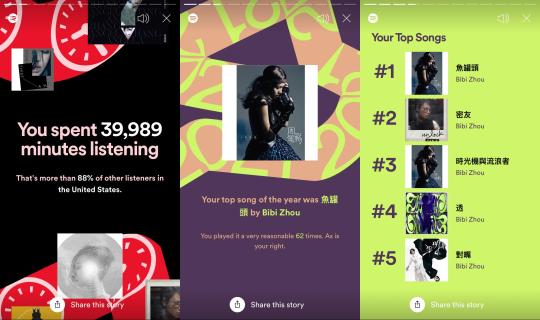
I had Spotify premium for a good chunk of the year, so now I really feel like I got my money’s worth! So yay for that.
I am not surprised to see 鱼罐头 at #1. I listened to that album a lot, and with 鱼罐头 being the first song on the album, it just makes sense. 密友 and 透 are a little more surprising to see. I remember not loving them earlier in the year, but as I heard them more and more, they grew on me a lot. I was a little surprised that no Tanya Chua songs made it into the top 5 because I’ve listened to her a lot throughout the 2nd half of the year.

At first I was so surprised to see kpop! I used to be into kpop before I started listening to Chinese music. But I realized that I still sometimes listen to kpop with my friend who likes it.
The middle is a little hard to read, so I’ll type it out:
Truth: The artist you binge-listened to the most was Bibi Zhou.
Lie: Your #1 Spotify playlist of the year was Release Radar.
Truth: The artist who appeared most in your playlists was Tanya Chua.
The lie was pretty obvious seeing as I rarely look at Release Radar.
Bibi Zhou doesn’t actually have that many monthly Spotify listeners, so I don’t think being in the top 0.01% of listeners is that impressive.
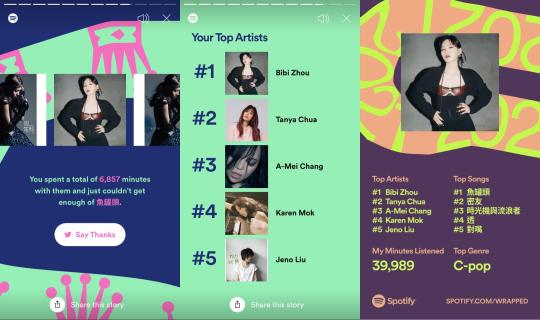
6,857 minutes ~ 114 hours :-O
I was surprised by my top 3-5. I would probably have guessed Sandy Lam over A-Mei. Karen Mok makes sense now that I’m thinking about it because I get her songs stuck in my head all the time. I would have thought 孙盛希 or 林宥嘉 would be #5 also.
Below are some of my other top songs from the personal playlist Spotify put together. I’ll list them out under the cut for your convenience.
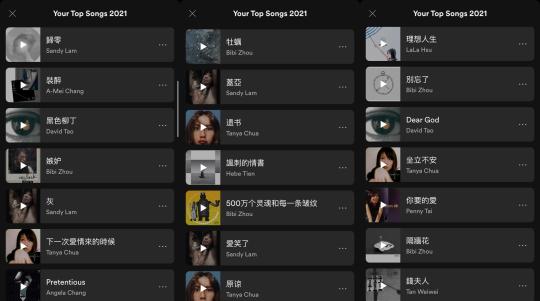
I observed that my top songs playlist really mirrors what I was listening to during the first half of the year. This checks out because 1) Spotify Wrapped apparently only includes through October and 2) I spent a lot more time listening to music in the first 6 months of 2021.

In your Chinese studies you’ve probably learned: 红色、橙色、黄色、绿色、蓝色、紫色、灰色、白色、黑色、咖啡色、粉红色
But there are so many beautiful colors out there! Let’s learn some more. These are color terms I’ve come across outside Chinese class.
In general you can indicate a light shade with 浅 and a dark shade with 深. I have also seen 墨 for dark and 淡 for light, but when I Googled various color terms, there were more results for 浅 and 深 than 淡 and 墨.
I spent way too much time messing with HTML to color the text to match (except for the shades of white).
- 褐色 hèsè - brown
- 橘黄色 júhuángsè - orange
- 奶油色 nǎiyóusè - cream
- 金黄色 jīnhuángsè - gold color
- 朱红色 zhūhóngsè - vermilion
- 米色 mǐsè - beige
- 棕色 zōngsè - brown
- 青色 qīngsè - cyan / blue-green
- 灰白 huībái - light gray / ash-colored
- 蔚蓝 wèilán - azure / sky blue
- 纯白 chúnbái - pure white
- 雪白 xuěbái - snow white
- 洁白 jiébái - spotlessly white / pure white
- 漆黑 qīhēi - pitch-black
- 铜色 tóngsè - copper
- 乌黑 wūhēi - jet-black / dark
- 靛色 diànsè - indigo (color)
- 金色 jīnsè - golden / gold (color)
- 银色 yínsè - silver (color)
Here are some single characters I’ve seen as well. Some of these are commonly used in names, like 彤 and 丹.
- 彤 tóng - red
- 丹 dān - red / pellet / powder / cinnabar
- 缇 tí - orange-red silk / orange-red colored
- 赤 chì - red / scarlet / bare / naked
- 碧 bì - green jade / bluish green / blue / jade
- 翠 cuì - bluish-green / green jade
- 皓 hào - bright / luminous / white (esp. bright white teeth of youth or white hair of old age)
- 颢 hào - bright / white
- 玄 xuán - black / mysterious
彤, 丹, and 缇 are all described as a red-orange color. I’m not really sure of the difference, so I just made them all the same shade. I’m also unclear on exact distinction between 褐色 and 棕色. Image search results certainly suggest that they are used differently. Not sure how 咖啡色 fits in either.
I stumbled across this giant Wikipedia table with many beautiful colors that you can check out to learn more!
Eason Chan is an iconic Hong Kong singer with many Cantopop and Mandopop albums. I first heard this song on Youth With You 3 when it was covered in the first performance round. Honestly I didn’t think their cover was that good…but I could tell instantly that I would like the original version of the song. I guess that says a lot about the quality of this song! It’s a rock song that starts somber and slow but then quickly builds. Sadly this song isn’t on US Spotify (there are covers though, as well as another great Eason Chan song with a title that has a similar vibe 《陪你度过漫长岁月》). Really the only flaw is that it’s a short song at only a bit over 3 minutes, so I’m always left wishing it were longer!
陈奕迅 (Eason Chan) - 让我留在你身边
我从来不说话
因为我害怕 没有人回答
我从来不挣扎
因为我知道 这世界太大
挣扎 zhēngzhá - to struggle
太多时间浪费 太多事要面对 太多已无所谓
太多难辨真伪太多纷扰是非在你身边是谁
辨 biàn - to distinguish / to recognize
真伪 zhēnwěi - true or bogus / authenticity
纷扰 fēnrǎo - turmoil / unrest / disturbance
是非 shìfēi - right and wrong / quarrel
最渺小的我 有大大的梦
时间向前走 一定只有路口没有尽头
纷纷扰扰这个世界 所有的了解
只要 让我留在你身边
渺小 miǎoxiǎo - minute / tiny / negligible / insignificant
最渺小的我 有大大的梦
我愿意安静的活在每个有你的角落
如果生活还有什么 会让你难过
别怕 让我留在你身边 都陪你度过
度过 dùguò - to pass / to spend (time) / to survive / to get through
最渺小的我 最卑微的梦
我发现这世界没有那么那么的不同
现实如果对你不公别计较太多
走吧暴风雨后的彩虹
卑微 bēiwēi - lowly / humble
不公 bùgōng - unjust / unfair
计较 jìjiào - to bother about / to haggle / to bicker / to argue / plan / stratagem
暴风雨 bàofēngyǔ - rainstorm / storm / tempest
也许会落空也许会普通
也许这庸庸碌碌的黑白世界你不懂
生命中所有的路口 绝不是尽头
别怕 让我留在你身边 都陪你度过
落空 luòkōng - to fail / to fall through / to come to nothing
庸庸碌碌 yōngyōnglùlù - ordinary / mediocre
Rare and Common Chinese Syllables
Recently I was doing a little light research on the rarest syllables in Chinese.* I discovered that I didn’t know any characters for some of the rare syllables I found, so I started wondering what syllables are the most common and the rarest in my vocabulary. I decided to undertake the unnecessary task of chronicling how many characters I know for each possible Chinese syllable.**
There are apparently 400+ possible Chinese syllables, and I only have so much time, so I’m sure I missed a character that I know here or there. However, the top 5 most common syllables (which I’m showing below) had a substantial lead over #6, so I’m fairly confident they are my true top 5. And for all the syllables presented below, I checked MDBG to confirm I wasn’t forgetting any characters.
*Rare in this case meaning how many characters exist for a syllable, not how often a syllable is used in the language. The latter would be an interesting but very different question. Also, I’m not taking into account tones here, and I am only considering simplified characters.
**I don’t have a perfect definition for what characters I “know.” I basically tried to include only characters I’m fairly confident I can write. There are definitely more characters out there that I recognize, but I didn’t want to include any that I believe I can’t read correctly out of context. I was a little more liberal for the rare category though.
Most Common
1)ji:几、给、极、寄、及、记、级、集、机、季、计、基、鸡、即、吉、击、纪、积、继、济、急、技、际、挤、激、辑、既、绩、肌、疾、己、忌、迹、寂、棘、圾、讥(37)
2)yi:一、以、亿、亦、翼、已、遗、易、义、艺、仪、异、依、议、益、医、意、译、奕、伊、疫、忆、宜、衣、移、逸、毅、怡、谊、疑、姨、椅、裔、邑、抑(35)
3)yu:鱼、与、玉、愈、于、语、预、余、雨、宇、予、域、遇、育、豫、钰、寓、昱、煜、喻、欲、狱、羽、裕、郁、虞、娱、妤、瑜、誉、浴、吁、愚、俞(34)
4)shi:是、十、试、使、诗、拾、时、市、师、室、适、式、实、事、视、石、势、史、识、世、狮、食、士、释、始、施、氏、示、失、湿、饰、逝、嗜(33)
5)qi:七、骑、器、起、期、其、企、气、奇、齐、启、弃、琦、淇、柒、棋、旗、绮、妻、契、麒、琪、汽、岂、歧、祺、戚、欺、祈、乞、泣、凄(32)
I was not surprised to see yi, ji, qi, and shi make the top 5. That lion-poet-rock verse exists for a reason, and I feel like yi, ji, and qi are just everywhere. Yu was a bit of a surprise, but it makes sense since I like to research Chinese names, and a lot of the characters I listed for yu are used in names.
Rarest
For the sake of brevity, I’m only showing 25 syllables max for each category. There were simply too many for me to list them all.
First are syllables for which I only know 2 characters:
- ang:昂、肮
- cang:藏、苍
- ceng:曾、层
- gen:跟、根
- geng:更、庚
- gun:滚、棍
- hei:黑、嘿
- ken:肯、恳
- kuan:款、宽
- niang:娘、酿
- pen:喷、盆
- qun:群、裙
- re:热、惹
- reng:仍、扔
- rou:肉、柔
- ruan:阮、软
- ruo:若、弱
- sai:赛、塞
- shua:刷、耍
- sun:孙、损
- te:特、忑
- wai:外、歪
- zhua:抓、爪
- zhui:追、坠
- zun:尊、遵
Next are syllables for which I only know 1 character:
- ca:擦
- cen:岑
- dei:得
- diu:丢
- fo:佛
- fou:否
- gei:给
- luan:乱
- lve:略
- nen:嫩
- neng:能
- nin:您
- nuan:暖
- nv:女
- nve:虐
- qia:恰
- ri:日
- run:润
- sen:森
- shei:谁
- shuan:拴
- tuan:团
- weng:翁
- zen:怎
- zhuai:拽
What I find really interesting is how some of the syllables above are ones I encounter all the time while others are ones I only even heard relatively recently. For instance, I was a bit surprised that I only know one character each for luan and nv. I guess since 乱 and 女 are very commonplace, I feel like those syllables are everywhere, and it never occurred to me that I only know one luan and one nv character. But I remember furrowing my brow when I first learned 拴 and 虐. They feel unnatural to say honestly! I have to think about it for a sec.
Lastly, here are syllables for which I didn’t know any characters.
- chua
- chuai
- chuo
- cou
- cuan
- den
- dia
- ei
- kei
- keng
- nou
- pou
- seng
- zei
- zuan
Some of these definitely elicited a “what? This is a legit Chinese syllable?” reaction from me. When I think about it more carefully, it makes sense that some, like chuo, exist. After all, I encounter zhuo and shuo all the time. But since I’ve never heard chuo, I guess it surprises me! Zei and dia strike me as the most unusual. Were you surprised by any of the syllables on this list?
If you’re interested in learning about the rarest syllables in general (not for me specifically), here’s some of the stuff I read:

When you face a moment where it would help to dish out a compliment, say to a male partner or a friend or a friend’s son, China Simplified wants you to be armed and ready!
The current trendy expressions – 小鲜肉 xiǎo xiān ròu a hot guy (lit. little fresh meat), 男神 nán shén male god, and 高富帅 gāofù shuài tall, rich and handsome – are great among friends to show you know the latest pop culture sayings. In other settings, however, you may want to reach for a more sophisticated compliment, one able to communicate a degree of respect and intellectual substance.
Styles of expression come and go. Check out this translation from one of China’s greatest novels in description of Baoyu, its popular male protagonist:
“His face resembles the mid-autumn moon. His features hover like a flower on a spring morning. Sideburns trimmed sharp, as if cut by a knife. Eyebrows as if painted in ink. His cheeks are like peach blossoms, eyes like autumn ripples. When angry he seems to smile, and when he frowns, he still endears.”
— from Dream of Red Mansions by Cao Xueqin (1715-1763)
Continue Reading

Modern Chinese have developed the habit of using the character 死 sǐ (die) to spice up their colloquial expressions. Let’s take a closer look to see what we can learn from these colorful language extremes. Often these “dying” expressions are used to express negative feelings with lighthearted charm…
饿死了è sǐ le – extremely hungry
渴死了kě sǐ le – extremely thirsty
吓死我了xià sǐ wǒ le – frightened me to death
疼死了téng sǐ le – to really hurt
热死了rè sǐ le – unbearably hot
冷死了lěng sǐ le – unbearably cold
累死了lèi sǐ le – dying from overwork
堵死了dǔ sǐ le – blocked road; plugged hole
烦死了 fán sǐ le – annoyed to death
困死了kùn sǐ le – incredibly sleepy
气死我了qì sǐ wǒ le – infuriating me
无聊死了wúliáo sǐle – bored to death
Continue Reading

When you face a moment where it would help to dish out a compliment, say to a male partner or a friend or a friend’s son, China Simplified wants you to be armed and ready!
The current trendy expressions – 小鲜肉 xiǎo xiān ròu a hot guy (lit. little fresh meat), 男神 nán shén male god, and 高富帅 gāofù shuài tall, rich and handsome – are great among friends to show you know the latest pop culture sayings. In other settings, however, you may want to reach for a more sophisticated compliment, one able to communicate a degree of respect and intellectual substance.
Continue reading
Valentine’s Day is just around the corner. Let us help you make a good impression with the ladies with these timeless Chinese phrases.

I was reading an article in Chinese about climate changes and how it will influence sports. I found there very useful phrases that I wanted to share with you! You can use them during HSK 5 writing section (I think :D)
I do not post pinyin and meaning of words, everything is on the website (I suggest to sing up for it, it’s for free!)
ARTICLE (click)
Useful Phrases:
根据最新研究 … - according to the latest research…
(noun) 可能就是我们不断变化的气候的受害者之一 - (n) may be one of the victims of our changing climate
(noun) 可能会被淹没 - may be submerged
到本世纪末 - by the end of this century
到2050年,据估计 … - by 2050, it is estimated that…
全球温度的上升 - global temperature rises
面临着很大的挑战 - facing great challenges
解决方案在于减少人类的碳足印 - the solution lies in reducing human carbon footprint

